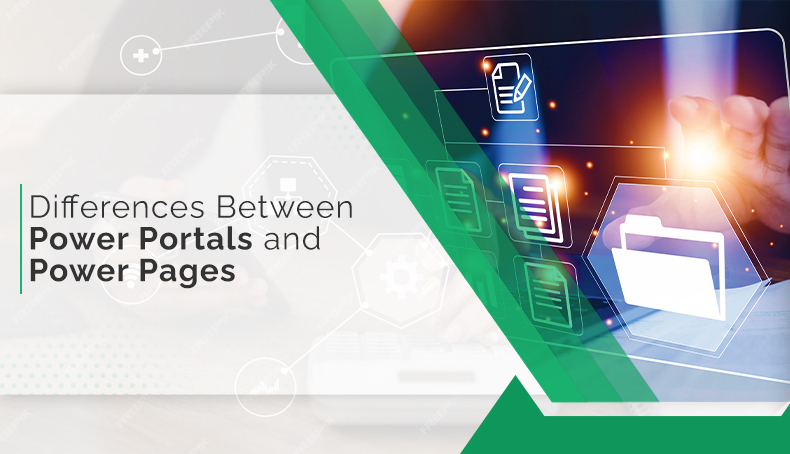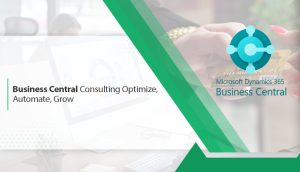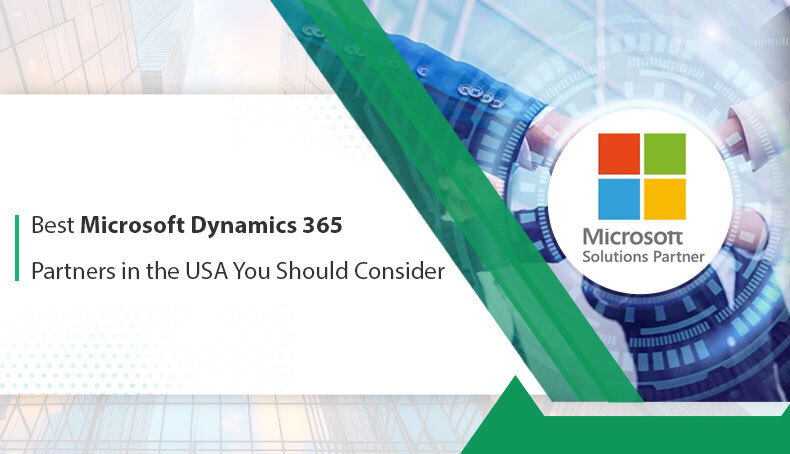In today’s rapidly evolving digital transformation landscape, businesses are increasingly leveraging Microsoft’s Power Platform to improve their operational efficiency. Power Pages and Power Apps stand out as two powerful tools that cater to different aspects of app development. Both solutions aim to streamline processes and improve interactions. Furthermore, they serve distinct purposes. Power Pages focuses on creating responsive, public-facing web applications. On the other hand, Power Apps is geared towards building custom applications for internal use, empowering teams to automate workflows and manage data efficiently.
Understanding the differences between Power Pages and Power Apps is essential for organizations looking to harness the full potential of the Power Platform. By evaluating these tools’ unique capabilities, businesses can make informed decisions that align with their strategic objectives and enhance overall productivity. This blog will explore the differences between Power Pages Vs Power Apps.
What are Power Portals?
Power app Portals is an excellent form of web portal platform. It enables companies to simply create and organize external-facing websites or apps. Furthermore, these portals allow consumers to extend their Power Apps and Dynamics 365 apps to pertinent audiences e.g., customers. They come with user-friendly interfaces and have a primary emphasis on facilitating outstanding communication and collaboration with exterior stakeholders.
Continue to learn more with our blog difference between power apps and power automate
What are the Power Pages?
What are power pages? Microsoft has introduced Power Pages that take Power Apps Portals and shapes on this capability. Just like Power Portals, Power Pages offers an improved user experience with a wide range of capabilities to create websites and portals. So, for non-developers, it will be easier to create websites and portals with the help of power pages. Thus, Microsoft Power Pages is a secure, low-code platform for creating websites and web pages.
The Differences Between PowerApps Portals and Microsoft Power Pages
Licensing
Power Portals require a portal creation option for its consumers. Consumers just have the Global Administrators, or Power Platform administrators access to create portals. On the other hand, Power Pages need only an extra license to sign up for a 30-day/month trial.
Coding Complexity
Microsoft Power Pages is a low-code platform. It can create and customize websites without any complex code to write. On the other hand, Power Portals requires users must have experience with HTML, JavaScript, CSS, and Liquid templates to create and customize websites.
Experience Level
For better implementation of Power Portals, consumers must have a basic understanding of HTML, CCS, and JavaScript of Liquid to customize their websites. On the other hand, Power Pages permits you to build low-code/no-code websites without any knowledge of coding. In other words, it is not essential to have coding knowledge.
Target Audience
Every business has a primary focus to provide access to specific data and functionalities to its consumers in a controlled manner. It’s perfect for scenarios like customer service portals or partner access sites. Marks a broader audience, comprising developers and organizations demanding to create custom web apps that require sophisticated design and functionality. It’s appropriate for apps where branding and user experience are supreme.
Mobile Site Previews
With PowerApps, you can easily preview your website on mobile Portals by simply retyping the link of your site design. In contrast, Power Pages, just scan a QR code on the desired device and continue with a more seamless experience.
Developer Experience
PowerApps Portals delivers restricted configuration abilities. Hence, you have to navigate away from the studio to add in other capabilities. However, In Power Pages Design, everything is centralized and organized. It works within the developer’s workstations to empower makers to add competencies as compulsory without leaving the studio. So, it offers a more unified and smooth builder experience. Power Pages also comprises full-site templates that enable users to quickly build an entire website without starting from scratch.
Learn more with the Power Automate free vs paid
Extensibility
Power Portals have come with a broader range of features and customization options. Hence, this feature makes it ideal for complex and highly customizable external-facing apps. While Power Pages are more limited in scope. It is well-suited for quickly building web pages that incorporate current data sources.
Provisioning Time
Portals can create websites that take far longer to provision as compared to the power pages.
Future-Proofing
Microsoft has now continued to evolve its Power Platform. Both Power Portals and Power Pages will probably see enhancements and new features. However, Power Pages is the newer solution. It may have more regular updates and innovations associated with modern web standards and user expectations.
What are the Similarities Between PowerApps Portals and Microsoft Power Pages?
- Power Pages is constructed on the solid foundation of PowerApps Portals. It comes with simple access to similar robust capabilities. The best part is the pro developer experiences of the original platform with the addition of a new low-code maker experience. Also, out-of-the-box templates help users of all experience levels design modern business websites.
- Power Pages Vs Power Apps use Microsoft Data Verse and store the data from multiple sources Microsoft Dynamics 365, Power BI, SharePoint, and more. Furthermore, it also permits makers to operate and store data effectively.
- Consumers can use either platform to construct externally facing websites.
- With the help of PowerBI, Power Virtual Agents and Power Automate flows in both Portals and Pages, both beginner Developers and Professional Developers alike can outspread their website capabilities.
- Within both platforms Makers can organize security, command table permissions, and identity providers for their sites as per their organization’s exclusive requirements
- Creators can use Pro developer tools on both their PowerApps Portals site and Power Pages site.
Conclusion
Thus, Power Portals and Power Pages serve essential functions within the Microsoft Power Platform. They cater to different needs and use cases. Power Portals are ideal for organizations seeking to provide straightforward access to data for external users.
In contrast, Power Pages is designed for those looking to create sophisticated, branded web applications with enhanced functionality and design flexibility. Choosing between Power Portals and Power Pages depends on your organization’s specific needs, existing infrastructure, and future goals. By understanding their differences, you can make an informed decision that aligns with your business strategy and enhances user engagement effectively.








